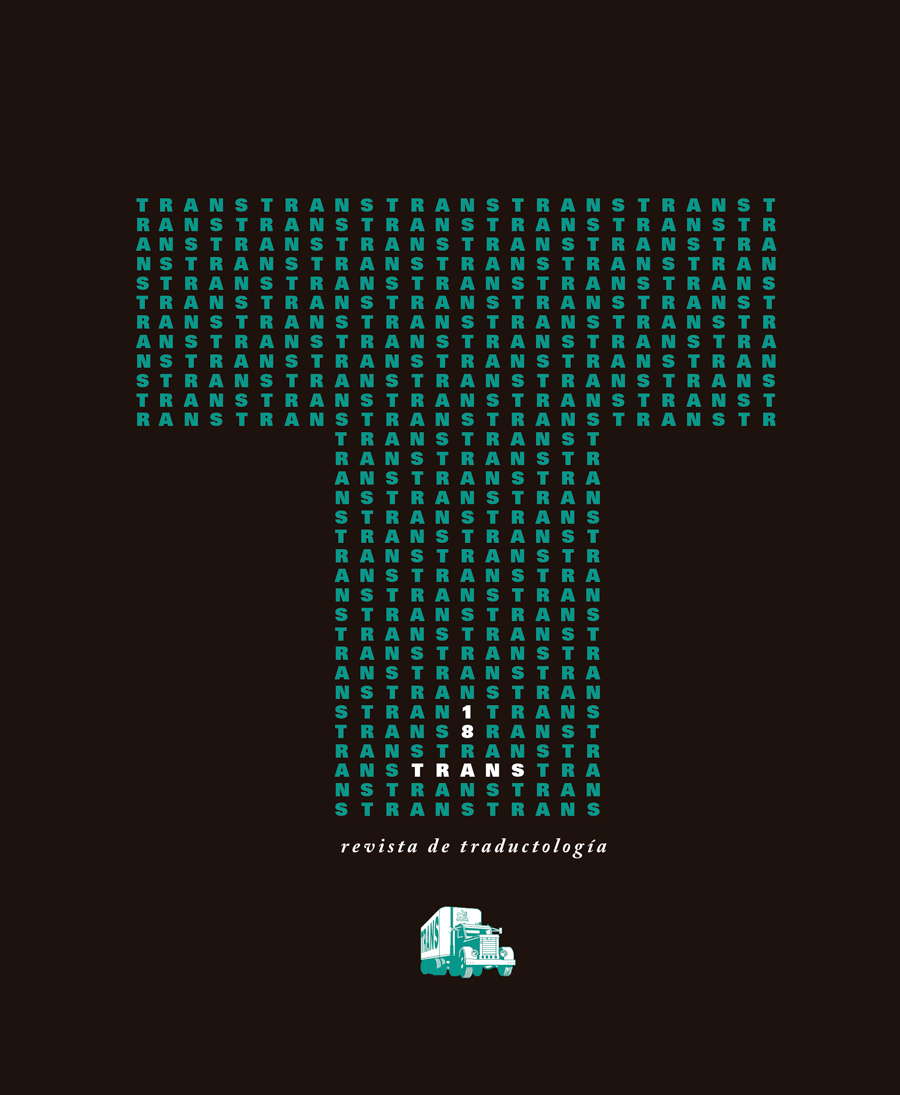Translating non-standard forms of reported discourse in children’s books: Den tredje grottans hemlighet by Swedish author P. O. Enquist in French and German as a case in point
DOI:
https://doi.org/10.24310/TRANS.2014.v0i18.3247Keywords:
translation of children’s literature, P.O. Enquist, voices in translation, non-standard reported speechAbstract
The imitation of character voices and the relationship between narrator and characters are known to be fruitful domains for authors’ creativity and expressivity and thus constitute an intriguing translation problem that lacks clear solutions. In this study, we examine the translating of nonstandard forms of reported discourse as distinct representations of voices in the French and German translations of the second children’s book by the Swedish author P.O. Enquist Den tredje grottans hemlighet, 2010 (“The Secret of the Third Cave”). We set out to analyze the translations of two stylistic features of this text: the use of hybrid forms of direct and indirect speech and the use of italics to mark a cited discourseDownloads
Metrics
Publication Facts
Reviewer profiles N/A
Author statements
Indexed in
-
—
- Academic society
- N/A
- Publisher
- Universidad de Málaga
Downloads
Published
How to Cite
Issue
Section
License
All contents published in TRANS. Revista de Traductología are protected under the Creative Commons Attribution-NonCommercial-ShareAlike 4.0 International (CC BY-NC-SA 4.0) license. All about this license is available in the following link: <http://creativecommons.org/licenses/by-nc-sa/4.0>
Users can copy, use, redistribute, share and exhibit publicly as long as:
- The original source and authorship of the material are cited (Journal, Publisher and URL of the work).
- It is not used for comercial purposes.
- The existence of the license and its especifications are mentioned.
- ShareAlike — If you remix, transform, or build upon the material, you must distribute your contributions under the same license as the original.
There are two sets of authors’ rights: moral and property rights. Moral rights are perpetual prerogatives, unrenounceable, not-transferable, unalienable, imprescriptible and inembargable. According to authors’ rights legislation, TRANS. Revista de Traductología recognizes and respects authors moral rights, as well as the ownership of property rights, which will be transferred to University of Malaga in open access.
The property rights are referred to the benefits that are gained by the use or the dissemination of works. TRANS. Revista de Traductología is published in an open access form and it is exclusively licenced by any means for doing or authorising distribution, dissemination, reproduction, , adaptation, translation or arrangement of works.
Authors are responsable for obtaining the necessary permission to use copyrighted images.













21.png)
